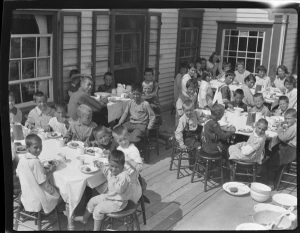ARCHIVAL MOMENT
March 5, 2019
 Mardi Gras literally means “Fat Tuesday. The day is also known as Shrove Tuesday (from “to shrive,” or hear confessions) or Pancake Tuesday.
Mardi Gras literally means “Fat Tuesday. The day is also known as Shrove Tuesday (from “to shrive,” or hear confessions) or Pancake Tuesday.
The custom of making pancakes comes from the need to use up fat, eggs and dairy before the fasting and abstinence of Lent begins. This year Ash Wednesday is on March 6.
GIVE HIM “SHORT SHRIFT”
On Shrove Tuesday, (March 5) Christians were encouraged to confess their sins so that they were forgiven before the season of Lent began.
The term survives today in ordinary usage in the expression “short shrift”. To give someone short shrift is to pay very little attention to his excuses or problems. The longer expression is, “to give him short shrift and a long rope,” which formerly meant to hang a criminal with a minimum of delay.
What is in that pancake
Lent is a time of abstinence, of giving things up. So Shrove Tuesday is the last chance to indulge yourself, and to use up the foods that aren’t allowed in Lent. Pancakes are eaten on this day because they contain fat, butter and eggs which were forbidden during Lent.
Pancakes were a simple way to use these foods, and one that could entertain the family. Objects with symbolic value are cooked in the pancakes, and those who eat them, especially children, take part in discovering what their future will be as part of the meal.
The person who receives each item interprets the gift according to the tradition:
- a penny—to symbolize poverty
- a nickel—to symbolize wealth
- a string—to symbolize a fisherman (if a boy got the string, he would be a fisherman, if a girl did, she would marry one)
- a holy medal—the house blessed with a priest or a nun.
- a hair clip—hairdresser or barber
- a button — to symbolize that you would never marry – a bachelor or an old maid
- a pencil stub – a career in teaching: imagine a lead pencil in your food!)
- a thimble—to symbolize that you would be a seamstress (a girl) or a tailor (a boy)
- a wedding ring—to symbolize that you would marry soon

